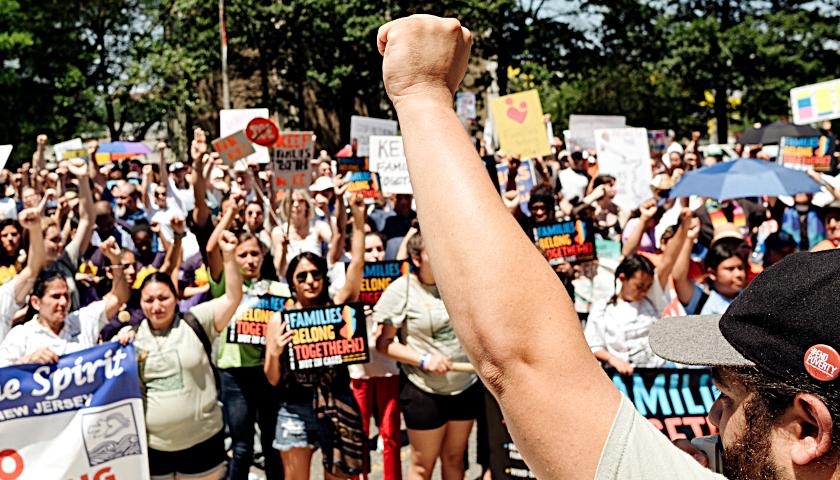Pennsylvania Governor Tom Wolf (D) this week signed legislation banning nongovernmental entities from issuing grants for election administration and also creating a state-run grant program to meet such administrative needs.
State Senators Lisa Baker (R-Dallas) and Kristin Phillips-Hill (R-Jacobus) sponsored the measure in response to revelations that left-leaning nonprofits like the Chicago-based Center for Tech and Civic Life (CTCL) bestowed large sums of money on localities across the nation in 2020. (Facebook Chief Executive Officer Mark Zuckerberg and his wife, Priscilla Chan, contributed $350 million to the organization that year.) Most CTCL grants going to Pennsylvania counties subsidized election administration in Democrat-heavy areas.
Investigations by the Philadelphia-based journal Broad + Liberty in 2021 revealed that the offices of Gov. Wolf (D) and former Secretary of State Kathy Boockvar (D) helped facilitate CTCL grant applications from a number of Democrat-run counties in the summer of 2020. That was several weeks before counties across the commonwealth were invited to apply for CTCL funds. Republicans reacted with concern about whether CTCL was acting in a partisan fashion.
“Voting is among our basic rights, and the responsibility for properly running and funding elections is vested in government,” Baker and Phillips-Hill said in a joint statement. “No matter who on the outside is contributing, no matter their expressed motivations, millions of dollars coming in from national figures or organizations naturally raises suspicions of hidden agendas.”
Because some county administrators complained that banning private election subsidies would deprive local governments of needed funds for equipment and personnel to process increasingly large volumes of absentee ballots, lawmakers amended the legislation to create the Election Integrity Grant Program. This $45 million annual item would allow counties to apply for allocations before August 15 each year. A county would be eligible for an amount based on its share of the state’s total registered voters, with Philadelphia being eligible for $5,400,695, the highest sum.
One controversial part of the legislation is a requirement that counties accepting the state grants begin counting mail-in ballots at a 7 a.m. on Election Day and “continue without interruption” until all ballots are counted. Many lawmakers have argued that counties should be able to begin pre-canvassing, i.e., opening and scanning mail-in ballots before Election Day.
Keystone State election offices have borne a more significant burden in counting absentee ballots since 2020. Act 77, which was enacted the prior year, gave voters the right to vote by absentee ballot without providing an excuse such as illness or travel.
Another election-related measure passed by the Republican-run General Assembly that Wolf signed this week is a bill by State Representative Ryan Warner (R-Lemont Furnace) to require that counties print and supply enough ballots for 50 percent of a precinct’s registered voters in a primary election and 100 percent of registered voters in a general election.
Ryan said he authored his legislation after reports came out indicating that numerous Pennsylvania precincts ran out of ballots for the May 18, 2021 primary election.
“Last May, voting precincts in several areas of the state, including Fayette and Westmoreland counties which I represent, actually ran out of ballots for people who showed up to vote in person,” Warner said. “That is simply unacceptable. This law will ensure it never happens again.”
In recent days, Republican lawmakers have passed more controversial election-integrity legislation to amend the state constitution and avoid the need for Wolf’s signature.
One such amendment would task the state auditor general with regularly auditing elections to determine possible fraud or other irregularities. Another would require anyone voting in the commonwealth to provide a state-issued identification document before doing so. A third amendment would put an end to lieutenant governor primaries and let each major party’s gubernatorial candidate pick his or her running mate.
– – –
Bradley Vasoli is managing editor of The Pennsylvania Daily Star. Follow Brad on Twitter at @BVasoli. Email tips to [email protected].
Photo “Tom Wolf” by Tom Wolf. CC BY 2.0.




